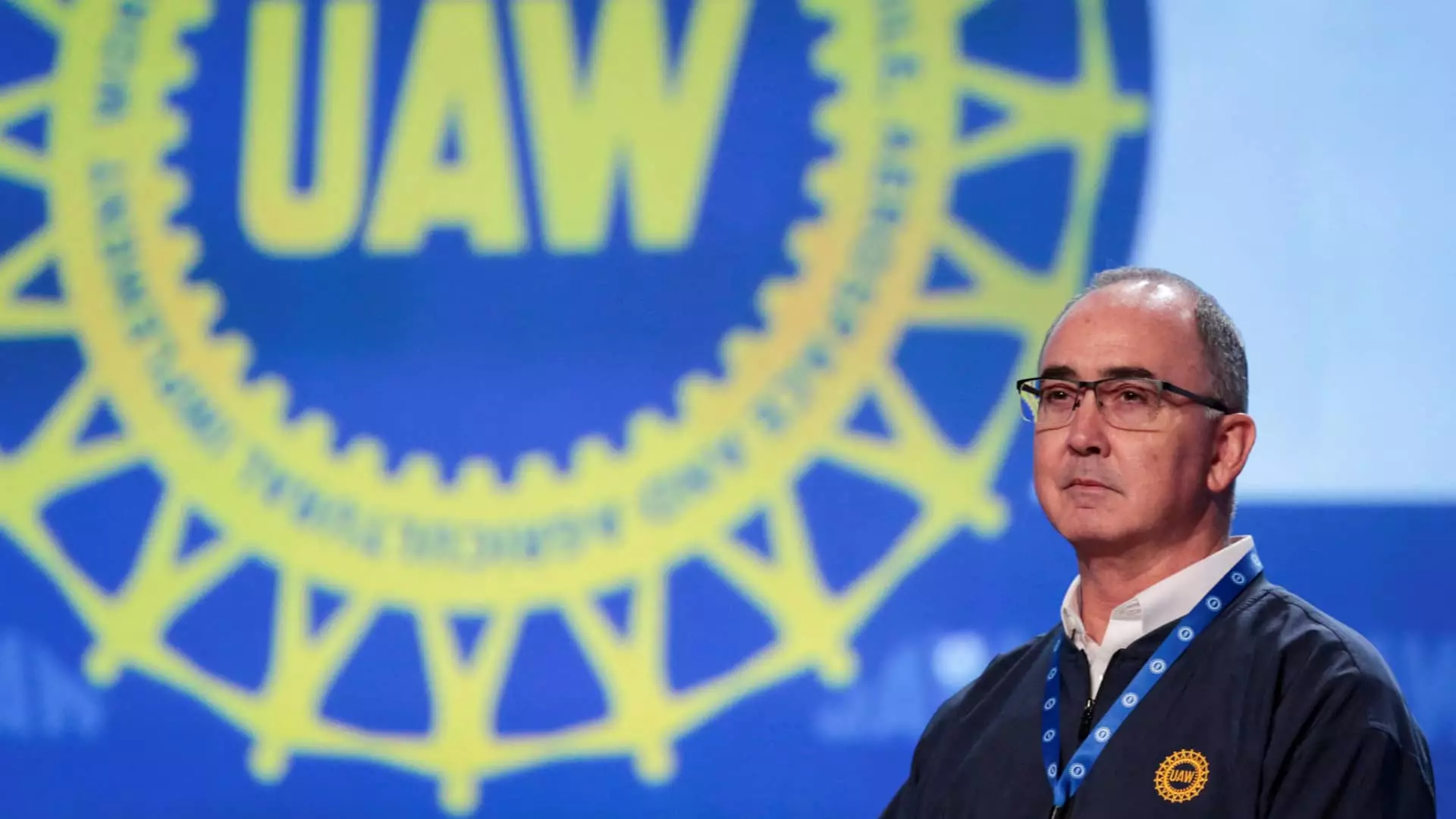United Auto Workers President Shawn Fain recently released a video accusing Stellantis CEO Carlos Tavares of price gouging consumers and failing to uphold parts of the union’s labor contract with the automaker. While criticism of corporate executives is not uncommon, especially in the auto industry, it is essential to analyze the validity and implications of such accusations before jumping to conclusions.
Fain’s comments suggest that something is “rotten” at Stellantis, pointing to declining sales, profits, and allegations of excessive CEO pay. He goes further to accuse Tavares of price gouging consumers in the pursuit of profits and claims that Stellantis is not honoring commitments made in the company’s worker contract. These allegations are serious, as they imply unethical behavior and a disregard for both employees and customers.
While Fain’s video has caused a stir, both Stellantis and the union have not provided immediate comments regarding the accusations. This lack of response leaves room for speculation and further debate on the matter. It is essential for both parties to address these concerns openly and transparently to maintain trust and accountability.
The criticisms raised by Fain, including job cuts, CEO pay, and failure to uphold labor agreements, are not entirely new. However, the severity of the claims and the public nature of the accusations demand a thorough investigation and response from both sides. Without proper clarification and resolution, these disputes can harm the reputation and credibility of all parties involved.
Carlos Tavares, the CEO of Stellantis, has been on a cost-cutting mission since the merger of Fiat Chrysler and PSA Groupe in January 2021. This strategy, part of the “Dare Forward 2030” plan, aims to increase profits and double revenue by 2030. However, the implementation of cost-saving measures, including layoffs and headcount reductions, has raised concerns among employees and stakeholders.
The reduction of headcount by 15.5% and changes to the supply chain and operations have resulted in significant changes within the company. Executives have described these cuts as grueling, indicating the challenges faced by employees during this transition period. Tavares’ pushback on the idea that these cost-cutting efforts have contributed to the company’s current problems highlights the complexity of managing a global automotive business.
The ongoing tensions between UAW President Shawn Fain and Stellantis CEO Carlos Tavares highlight the challenges faced by both labor and management in the auto industry. Accusations of price gouging, failure to uphold contracts, and cost-cutting measures underscore the need for open communication, accountability, and transparency in corporate governance.
While conflicts and disagreements are inevitable in any organization, addressing these issues constructively and collaboratively is crucial for long-term success and sustainability. Both Fain and Tavares must work together to find common ground and resolve their differences to ensure a positive work environment and future growth for Stellantis. It is only through mutual respect, dialogue, and compromise that meaningful progress can be achieved in the face of complex corporate challenges.

